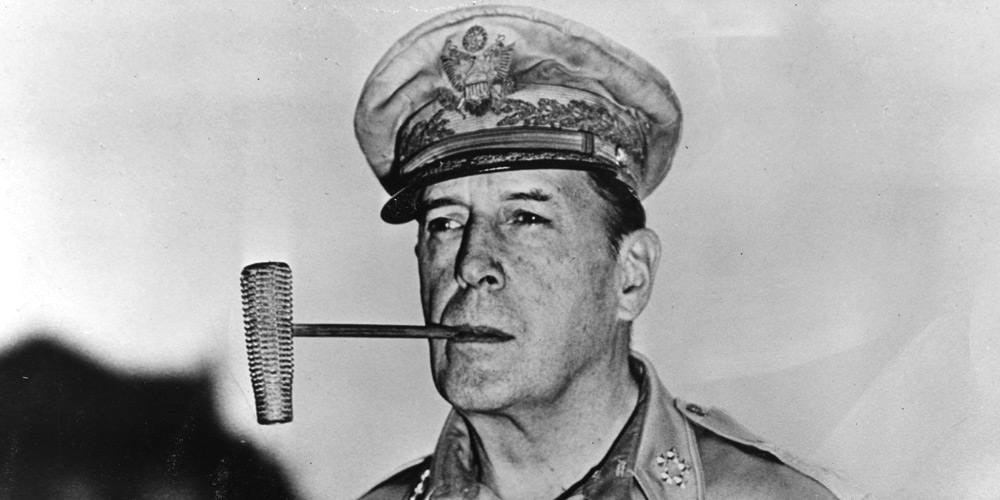strategy & business, May 29, 2019
by Theodore Kinni
Photograph by Pictorial Press Ltd / Alamy
I find hubris to be a fascinating cognitive flaw. Perhaps the spectacle of arrogance leading to a fall from grace provides a socially acceptable outlet for my predilection for schadenfreude — another obnoxious personality glitch. But my flaws don’t matter all that much. I’m not a leader.
For leaders, the consequences of cognitive flaws like hubris are magnified. And nowhere is the danger of managerial hubris more evident than in the career of General Douglas MacArthur, whose life and career I studied for my book No Substitute for Victory: Lessons in Strategy and Leadership from General Douglas MacArthur. In June 1950, when President Harry Truman appointed him to head the United Nations Command at the start of the Korean War, MacArthur was already a prime candidate for hubris. He had served as commander of the U.S. Army Forces in the Pacific in WWII and was still, at age 70, serving as the de facto leader of postwar Japan and its more than 80 million citizens. He was, as biographer William Manchester put it, an “American Caesar.” It is unlikely that MacArthur would have objected to the characterization, had he been alive to hear it.
If MacArthur had an elevated sense of ego and invincibility by 1950, his initial success in prosecuting the Korean War surely reinforced the feeling. As the UN forces fought to hang on at Pusan, their last foothold on the Korean Peninsula, MacArthur mounted an audacious, large-scale amphibious attack well behind enemy lines at the port city of Inchon. The plan was risky, if not foolhardy: Inchon’s 30-foot tides are so extreme that the window for making the assault was limited to two days in September. Moreover, if the landing forces had been unable to take the port, they would have been trapped.
As it turned out, the Inchon invasion was a complete success. The North Korean Army reeled in surprise, and a day later, the UN forces at Pusan broke out. Within two weeks, the invaders had been expelled from South Korea and the UN forces crossed the 38th Parallel, heading north to the Chinese border. The stage was set for one of the 20th century’s most dramatic exhibitions of hubris. Read the rest here.
Sunday, June 2, 2019
Managerial hubris brought down MacArthur
Posted by
Theodore Kinni
at
3:01 PM
![]()
Labels: corporate success, decision making, entrepreneurship, leadership, personal success, strategy+business, work
Subscribe to:
Post Comments (Atom)















No comments:
Post a Comment